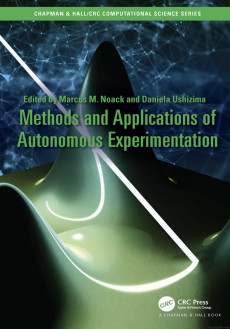 From electron microscopy to synchrotron light sources, advanced experimental facilities have revolutionized scientific discovery and understanding across various domains, from biology to medicine, physics, materials sciences, and more. And, the emerging field of Autonomous Experimentation is poised to take these scientific experiments to the next level.
From electron microscopy to synchrotron light sources, advanced experimental facilities have revolutionized scientific discovery and understanding across various domains, from biology to medicine, physics, materials sciences, and more. And, the emerging field of Autonomous Experimentation is poised to take these scientific experiments to the next level.
Autonomous Experimentation describes what are essentially research robots, self-driving labs, or other systems that plan, execute, and evaluate experiments toward research objectives supplied by human researchers. Where humans were once burdened with the laborious task of overseeing each experimental measurement and making necessary adjustments, Autonomous Experimentation utilizes advances in mathematics, physics, machine learning, and algorithms to facilitate automated and intelligent decision-making, minimizing the need for human intervention.
“Because the field is still in its infancy, with new methods, algorithms, and frameworks being developed and deployed continuously, there is no one correct definition for the term ‘Autonomous Experimentation.’ This term evokes a collection of multi-faceted and complex topics that mean different things to different people depending on their background,” said Marcus Noack, a scientist in the Lawrence Berkeley National Laboratory’s Applied Mathematics and Computational Research Division (AMCR).
He adds that this lack of common language can hinder the interdisciplinary collaboration necessary to make meaningful progress in the field. To bridge this gap, Noack and Berkeley Lab Scientist Daniela Ushizima teamed up to co-edit Methods and Applications of Autonomous Experimentation, the first-ever book dedicated to the topic of Autonomous Experimentation. Published by CRC Press, the book was released on December 14, 2023.
“Just as auto-complete was revolutionary for text composition, autonomous experimentation will change the way experiments are performed. This book attempts to lay the groundwork for an organizational paradigm for Autonomous Experimentation and discovery. By combining insights from leading theorists, machine learning engineers, and applied scientists working in the field of Autonomous Experimentation, we aimed to lay the foundation for future research by translating the challenges in the various applied sciences into mathematical and computational problems without losing scientific meaning and interpretability,” said Ushizima.
As members of Berkeley Lab’s Center for Advanced Mathematics for Energy Research Applications (CAMERA), Noack and Ushizima have spent many years working on international interdisciplinary teams to advance the technology for Autonomous Experimentation in various science domains. In fact, CAMERA hosted a workshop on “Autonomous Discovery for Science and Engineering” in April 2021, which uncovered that the endeavor of Autonomous Experimentation needs mastery in many different areas of expertise to be executed successfully for any given set of instruments.
This takeaway inspired Noack and CAMERA researchers to form the Community for Autonomous Scientific Experimentation (CASE), which seeks to facilitate collaborations and information exchange to accelerate the adoption of autonomous methods and aid scientific discovery. The workshop’s takeaways also inspired the subject matter for this book and helped Noack and Ushizima identify the book’s guest authors.
“This book will be useful for members of the scientific community who are looking to improve their research methods, as well as for students and industry professionals interested in the future of the field,” said Noack. “The field of Automated Experimentation is diverse, and this book seeks to highlight these different perspectives. Readers will see where many expert thoughts and visions overlap and where their views diverge. But in the end, these experts all see one thing in common: the goal to liberate practitioners from micro-managing experiment designs and instead allow for the focus to be on the underlying domain of science.”
Learn more about Berkeley Lab’s Work in Autonomous Experimentation:
- The Future is Bright: CAMERA Mathematics for Accelerating Scientific Discovery
- Meet the Autonomous Lab of the Future
- A Faster Way to Study 2D Materials for Next-Generation Quantum and Electronic Devices
- Autonomous Discovery: What’s Next in Data Collection for Experimental Research
- Berkeley Lab’s CAMERA Leads International Effort on Autonomous Scientific Discoveries
About Computing Sciences at Berkeley Lab
High performance computing plays a critical role in scientific discovery. Researchers increasingly rely on advances in computer science, mathematics, computational science, data science, and large-scale computing and networking to increase our understanding of ourselves, our planet, and our universe. Berkeley Lab's Computing Sciences Area researches, develops, and deploys new foundations, tools, and technologies to meet these needs and to advance research across a broad range of scientific disciplines.

